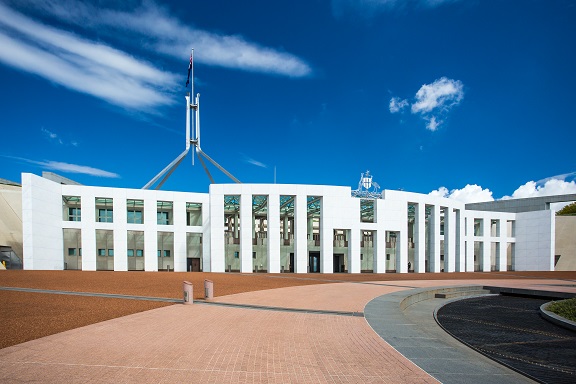
by Craig Sullivan | Jul 31, 2024 | Media Release
Businesses and industry remain very concerned at persistent inflation according to Australia’s largest and most representative business network.
The Australian Chamber of Commerce and Industry was responding to the June quarterly inflation figure of 1 per cent driving annual inflation up to 3.8 per cent from 3.6 per cent.
ACCI’s Chief of Policy and Advocacy David Alexander says today’s result is symbolic of the challenges facing business right now.
“The persistence of elevated inflation is a concern and reflects that business conditions in Australia continue to be a challenge,” Mr Alexander said.
Mr Alexander called on the Reserve Bank to exercise “fine judgement” when it next meets to decide on whether to increase rates or leave them on hold.
He’s also pointed to stalled rates of productivity and its role in driving up inflation.
“The Reserve Bank has warned that wage rises not linked to productivity gains will only contribute to inflation.”
Mr Alexander said there is also a role for governments in not adding to pressure on inflation by undisciplined spending.
“Today’s result is a reminder that governments at both federal and state levels need to refocus their attention to a more disciplined fiscal policy.
“It remains a concern that elevated inflation is putting pressure on higher interest rates which in turn puts further cost pressures on business,” Mr Alexander said.

by Craig Sullivan | Jul 30, 2024 | Media Release
Australian air and seaports need to modernise passenger processing and do away with antiquated systems such as the Incoming Passenger Card according to a new report by the peak body representing Australian businesses engaged with the visitor economy.
The Future Traveller Strategy report by Australian Chamber – Tourism says Australia risks losing its reputation as a desirable destination for overseas tourists, if we don’t improve the passenger experience as they travel through our air and seaports.
Australian Chamber – Tourism executive chair John Hart says the report recommends new and better ways of processing passengers to improve their experience.
“Whilst Australia ranks fifth in the world for travel and tourism competitiveness, we are 53rd for ground and port infrastructure and 112th for price competitiveness out 119 countries,” Mr Hart said.
“The government needs to embrace technology and streamline systems such as abolishing the outdated Incoming Passenger Card, when the passenger information can be provided by travel providers and travel agents.”
Among the other recommendations in the report are:
- Making multiple-entry visas available for key markets.
- Invest in ‘passenger on the move’ technology as an alternative to the SmartGate system.
- Ensure there are appropriate air capacity settings to increase competition and lower costs of airfares.
- Additional resources to allow travellers entering Australia via seaports more expedient processing.
The report also makes recommendations for Australian travellers heading overseas.
These include:
- Additional investment into the Australian Passport Office to enhance the digital pathway for passport applications and renewals.
- Enable additional providers in the travel and tourism supply chain to receive passport applications.
Mr Hart also cites the Tourism Refund Scheme where visitors are refunded local taxes as another area ripe for improvement.
“The Tourist Refund Scheme is a classic example. Other countries now offer refunds of local taxes paid at the point of purchase with a contactless confirmation at the border.
“In contrast, Australia’s system is plagued by long queues at airports and manually-completed refund paperwork,” Mr Hart said.
He also said tourism is too valuable a commodity to risk losing visitors because of outdated passengers screening and processing methods.
“Between inbound and outbound travel, there is a spend of over $100 billion.
“We should back ourselves to grow international tourism and generate return visitation to our great country.”
The full strategy can be accessed by clicking here.

by Craig Sullivan | Jul 28, 2024 | Media Release
The Australian Chamber of Commerce and Industry notes the significant changes to portfolios affecting the business community as announced by the Prime Minister this afternoon.
Of most relevance to Australia’s largest and most representative business network are the new Ministers in the portfolios of Home Affairs, Immigration and Cybersecurity, Employment and Workplace Relations and Training and Skills.
Accordingly, we welcome the appointments of Tony Burke, Senator Murray Watt and Andrew Giles in their respective portfolios.
ACCI looks forward to working constructively with all the newly appointed ministers in their relevant portfolios.
by Craig Sullivan | Jul 25, 2024 | Media Release
The Australian Chamber of Commerce and Industry wishes to thank Brendan O’Connor for his contribution to public life, especially as Skills and Training Minister.
Australia’s largest and most representative business network has recognised Minister O’Connor’s achievements in particular his establishment of Job and Skills Australia and the Jobs and Skills Councils.
ACCI chief executive officer Andrew McKellar praised Minister O’Connor for his engagement and accessibility to all stakeholders.
“The business community has benefited from Minister O’Connor’s strong engagement and practical vision to reposition our vocational, education and training system to be more responsive to emerging skills needs and priorities.
“Minister O’Connor has created a legacy of enhanced co-ordination and oversight of our national skills and training infrastructure which will be more tailored to the needs of business and industry across Australia.
“He made an important contribution and brought great experience and judgement to his role as a leading cabinet minister in the current government.”
“He has worked extremely hard and we wish him and his family all the best for the future.”

by Craig Sullivan | Jul 22, 2024 | Media Release
Almost half of small business owners have considered closure in the past twelve months according to a survey by Australia’s largest and most representative business network.
The 2024 Small Business Conditions Survey compiled by the Australian Chamber of Commerce and Industry found that small business owners feel neglected and are being strangled by red tape.
The survey took the pulse of small businesses throughout the country and found:
· 45 per cent of small business owners have considered closing or leaving in the past 12 months.
· 82 per cent of small business owners said that red tape is having a major or moderate impact on their business.
· 50 per cent of respondents said they were spending more time on red tape than 12 months ago.
· 40 per cent said they will make a reduced or a significantly reduced profit this financial year compared to the previous year.
ACCI chief executive officer Andrew McKellar says the survey shows that small businesses are in crisis.
“Small businesses are the backbone of our economy. However, our new survey shows the dire conditions they face they and are often a second thought when it comes to policy making, legislation and regulations,” Mr McKellar said.
The survey shows that policy makers and regulators need to do better to help small businesses and not tie them up in regulations and red tape.
“Small businesses need more consideration from governments, especially when they decide to change rules and regulations. Governments tend to be very good at introducing new regulations but not so good at explaining those changes.
“Saving time on administration and compliance is also another way to boost productivity,” Mr McKellar said.
Respondents to the survey also nominated increasing input costs as the greatest pressure facing their small businesses, followed by skills and worker shortages, then government regulation.
Over half of the respondents said the greatest expense to their small business is overcoming skills and worker shortages.
“The current environment makes it hard for small businesses to create jobs and employ people,” Mr McKellar said.
Changes to industrial relations laws were also a major concern for small businesses, with more than half saying the legislation will have a damaging or extremely damaging impact.
“We have yet to see the full impact of the government’s industrial relations laws flow through, but small businesses are very worried about the potential for unions to interfere with their decision-making,” Mr McKellar said.
“In this environment of labour shortages and inflated energy costs, already putting pressure on small businesses, the government’s IR law changes are a further kick in the teeth.”
You can read the full survey here.
You can access the fact sheet here.

by Craig Sullivan | Jun 26, 2024 | Media Release
Governments must act immediately to get more gas supply into the grid, Australia’s largest and most representative business network said today.
Australian Chamber of Commerce and Industry chief executive officer Andrew McKellar said the report issued by the Australian Energy Market Operator (AEMO) should ring alarm bells inside federal and state governments.
AEMO has indicated that coal fired power stations will close at a much faster rate than is currently scheduled.
Yet the transition to renewables as coal power is phased out is running well behind schedule.
“AEMO is forecasting that demand for gas power production will double by 2050, but gas reserves are dwindling and stronger co-ordination across all levels of government is required to secure the necessary supply needed for the future,” Mr McKellar said
“Adding more gas into the energy mix in the short to medium term will make that transition to renewables much smoother and help us to reach net zero carbon by 2050”.
“Businesses now face even higher energy costs with the early closure of coal and slow rollout of renewables increasing pressure on the system.
“This is a wake-up call to our governments who have done little to get extra gas into the energy grid, despite repeated warnings from the gas industry of a looming shortage.”
Last week AEMO sent a threat notice to the gas industry, warning that gas supply on the east coast may be inadequate to meet demand in 2024.
The situation is expected to get even worse over the next three years.
The notice follows high demand for heating during a cold snap in eastern Australia and an earlier warning from AEMO that generators may need to burn diesel to secure electricity supply.
Mr McKellar said urgent action is needed to get more investment in gas exploration and supply and that the threat of forced shutdowns of manufacturing would hit business hard.
“At a time of low economic growth and rising labour costs this is the last thing business needs,” Mr McKellar said.
“Attracting new investment to open fresh gas reserves is desperately needed if we are to meet current demand as well as the increasing demand for power generation over the next 25 years.”




